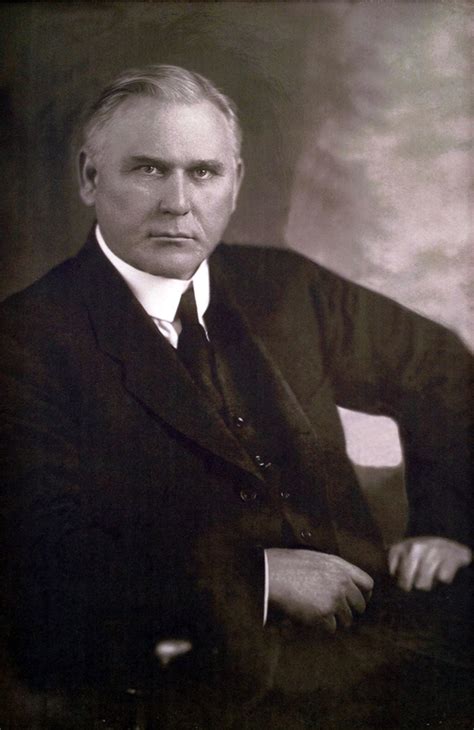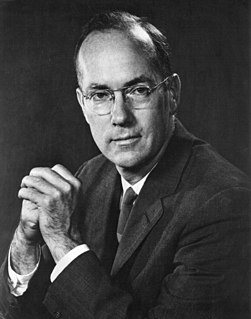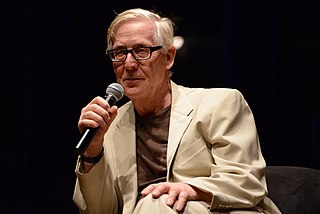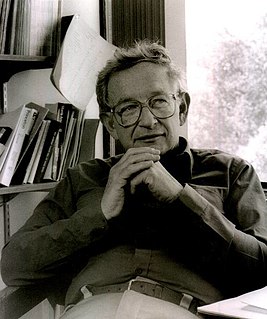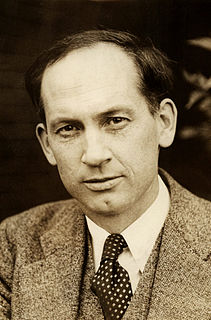Top 728 Implies Quotes & Sayings - Page 11
Explore popular Implies quotes.
Last updated on April 24, 2025.
By academic freedom I understand the right to search for truth and to publish and teach what one holds to be true. This right implies also a duty: one must not conceal any part of what on has recognized to be true. It is evident that any restriction on academic freedom acts in such a way as to hamper the dissemination of knowledge among the people and thereby impedes national judgment and action.
There is a theory, that I rather subscribe to. The frame story implies that if he doesn't change, she will kill him. It's all very complex and subtle. The story is about a woman who persuades a man in power to a different temper and attitude, and so it is about women's wiles, what women will get up to. She has a plan, she has a scheme.
On the other hand, the pleasure caused by laughter, even on the stage, is not an unadulterated enjoyment; it is not a pleasure that is exclusively esthetic or altogether disinterested. It always implies a secret or unconscious intent, if not of each one of us, at all events of society as a whole. In laughter we always find an unavowed intention to humiliate, and consequently to correct our neighbour, if not in his will, at least in his deed.
What Warcollier demonstrated is compatible with what modern cognitive neuroscience has learned about how visual images are constructed by the brain. It implies that telepathic perceptions bubble up into awareness from the unconscious and are probably processed in the brain in the same way that we generate images in dreams. And thus telepathic “images” are far less certain than sensory-driven images and subject to distortion.
I never thought I'd say the sentence 'It was a real honour' - because that implies that you've done something pretty special. But now I've done that several times. Yesterday I was in Buckingham Palace - I actually met the Queen yesterday and that was an honour. I never thought I'd do something like that.
We can't use the word normal anymore because it's sort of come to be politically incorrect, because normal implies a classification, and categorizations, and exclusions, and so forth. So neurotypical is the word that we now have to use for what I call normal behavior. Neurotypical behaviors are those kinds of behaviors within the range of usual human conduct that do not rise to the level of a disorder.
Our contention is not for mere toleration, but for absolute liberty. There is a wide difference between toleration and liberty. Toleration implies that somebody falsely claims the right to tolerate. Toleration is a concession, while liberty is a right. Toleration is a matter of expediency, while liberty is a matter of principle.
While theoretically a person may block God out, logically there will be a breakdown because ultimately all enunciation implies a moral doctrine of some kind. And if that moral doctrine is not absolute then the definer himself becomes undefined. That's what we are living with - an undefined definer giving us definitions for our course, and we are being trapped in the quicksand of the absence of objective truth.
Two years and a half and Syria is still withstanding against the United States, the West, Saudi Arabia, the richest countries in this area, including Turkey, and, taking into consideration what your question implies, that even the big part or the bigger part of the Syrian population is against me, how can I withstand till today ? Am I the superhuman or Superman, which is not the case !
THE FIRST STEP in changing the future is Desire, that is, define your objective - know definitely what you want. SECOND: construct an event which you believe you would encounter following the fulfillment of your desire - an event which implies fulfillment of your desire - something which will have the action of Self predominant.
Tolerance has been a very important feature of Christianity from its very roots, despite all the other things that have gone on since. And that, I think, must be the global perspective. Tolerance implies more than saying, "Well, let the Muslims go on with what they are doing." It also means trying to learn something from them and adding that to your own tradition. That is the attitude I think needs to inform the global citizen of the future.
Satyagraha means insistence on what one knows to be the truth. The insistence implies the exercise of free will as the need of social obligation. If one is content to know the truth himself, he does not become a votary of Satyagraha. A Satyagrahi should not only know the truth but should insist upon it in social relations. So Satyagraha is activation of truthfulness.
Science, with its experiments and logic, tries to understand the order or structure of the universe. Religion, with its theological inspiration and reflection, tries to understand the purpose or meaning of the universe. These two are cross-related. Purpose implies structure, and structure ought somehow to be interpretable in terms of purpose.
Though we may never be able to comprehend human life, we know certainly that it is a movement, of whatever nature it be. The existence of movement unavoidably implies a body which is being moved and a force which is moving it. Hence, wherever there is life, there is a mass moved by a force. All mass possesses inertia; all force tends to persist
As long as mankind is made up of independent individuals with free will, there cannot be any social status quo. Men will develop new urges, and these will give rise to new problems, which will require ever new solutions. Human life implies adventure, and there is no adventure without struggles and dangers.
Problems may be solved in the study which have baffled all those who have sought a solution by the aid of their senses. To carry the art, however, to its highest pitch, it is necessary that the reasoner should be able to use all the facts which have come to his knowledge; and this in itself implies, as you will readily see, a possession of all knowledge, which, even in these days of free education and encyclopaedias, is a somewhat rare accomplishment.
Anxiety and desire are two, often conflicting, orientations to the unknown. Both are tilted toward the future. Desire implies a willingness, or a need, to engage this unknown, while anxiety suggests a fear of it. Desire takes one out of oneself, into the possibility or relationship, but it also takes one deeper into oneself. Anxiety turns one back on oneself, but only onto the self that is already known.
It is hubris, claim the critics of 'absolutism', to suppose that we could ever even approximate to a true description of how the world anyway is. It is bad faith or 'bullshit', respond 'absolutists', to suppose - as the rhetoric of postmodernism implies - that we could seriously live and act with the thought that truth and value are simply our own projections. An attractive feature of 'ineffabilism', as I see it, is that it evades these accusations.
Guilty pleasure implies that it's something that I feel guilty for watching... people tell me I should feel guilty for watching because I'm too old to watch it, but I don't give a damn: I love everything on Cartoon Network from 'Adventure Time' to 'The Adventures of Gumball', 'Teen Titans'... all those shows that are for my kids, I like those!
It was not their irritating assumption of equality that annoyed Nicholai so much as their cultural confusions. The Americans seemed to confuse standard of living with quality of life, equal opportunity with institutionalized mediocrity, bravery with courage, machismo with manhood, liberty with freedom, wordiness with articulation, fun with pleasure - in short, all of the misconceptions common to those who assume that justice implies equality for all, rather than equality for equals.
You and I may only be mortals, with all the foolishness and fallibility that that state implies, but we're mortals made in the image of heaven. The gods can't do their work without us. So let's be bold, in their cause and in our own. It's our job, we humans, to make manifest that which is unmanifest-and to raise into consciousness, in this material dimension, that which had been known before only in heaven.
Nothing like this has been attempted before. (...) It might be called a literary Porto Alegre. That implies a beginning, with much fierce argument and discussion to come. But whatever the outcome of ensuing criticisms or objections, The World Republic of Letters -- empire more than republic, as Casanova shows -- is likely to have the same sort of liberating impact at large as Said's Orientalism, with which it stands comparison.
Feynman's cryptic remark, "no one is that much smarter ...," to me, implies something Feynman kept emphasizing: that the key to his achievements was not anything "magical" but the right attitude, the focus on nature's reality, the focus on asking the right questions, the willingness to try (and to discard) unconventional answers, the sensitive ear for phoniness, self-deception, bombast, and conventional but unproven assumptions.
Culture implies all which gives the mind possession of its own powers, as languages to the critic, telescope to the astronomer. Culture alters the political status of an individual. It raises a rival royalty in a monarchy. 'Tis king against king. It is ever a romance of history in all dynasties--the co-presence of the revolutionary force in intellect. It creates a personal independence which the monarch cannot look down, and to which he must often succumb.
Faith from, its essential nature implies the fallen state of man, while it recognizes the principles of the covenant of grace. It is itself the condition of that covenant. It is a grace which is alike distinguished from the love of angels and the faith of devils. It is peculiar to the returning sinner. None but a lost sinner needs it; none but a humbled sinner relishes it.
The acceptance of ambiguity implies more than the commonplace understanding that some good things and some bad things happen to us. It means that we know that good and evil are inextricably intermixed in human affairs; that they contain, and sometimes embrace, their opposites; that success may involve failure of a different kind, and failure may be a kind of triumph.
My favorite quote: The land ethic simply enlarges the boundaries of the community to include soils, waters, plants, and animals, or collectively: the land. In short, a land ethic changes the role of Homo sapiens from conqueror of the land-community to plain member and citizen of it. It implies respect for his fellow-members, and also respect for the community as such.
Conscious means "having an awareness of one's inner and outer worlds; mentally perceptive, awake, mindful." So "conscious business" might mean, engaging in an occupation, work, or trade in a mindful, awake fashion. This implies, of course, that many people do not do so. In my experience, that is often the case. So I would definitely be in favor of conscious business; or conscious anything, for that matter.
And when comfort is what we want, one of the most powerful tonics alternative medicine offers is the word 'natural.' This word implies a medicine untroubled by human limitations, contrived wholly by nature or God or perhaps intelligent design. What 'natural' has come to mean to us in the context of medicine is 'pure' and 'safe' and 'benign'. But the use of 'natural' as a synonym for 'good' is almost certainly a product of our profound alienation from the natural world.
In a world that has gone global, we no longer have a choice. If we don't export freedom, we risk importing the viruses which have corrupted other nations. ... Some critics complained that President Bush was arrogant when he suggested America can and should export freedom to other countries. This implies the people of unfree countries may not wish to be free. Which is the greater arrogance?
Data isn't information. ... Information, unlike data, is useful. While there's a gulf between data and information, there's a wide ocean between information and knowledge. What turns the gears in our brains isn't information, but ideas, inventions, and inspiration. Knowledge-not information-implies understanding. And beyond knowledge lies what we should be seeking: wisdom.
Being singer/songwriter implies versatility and being able to create more than one medium, and R&B artist is a box, simple as that. It is 'that's what you do, that's what you are', and that's a little unfair, to me, because I don't just do that. So I like singer/songwriter because it allows me to move a little bit more freely.
Because of the oil-and-water relationship governments have cultivated between ethics and political economy, speaking in plain terms - spelling it out as it is - as become foreign to the public. So here goes: When government sports a surplus, this implies that the political pickpockets have stolen more funds than they can possibly dream of spending. The property is not theirs to keep! Conversely, when deficits are reported, this means that the kleptomaniacs have not been able to steal sufficient funds to cover their profligacy.
That the speech of self-disclosure should be translatable seems to me very odd, but I am convinced that it is. The conclusion that I draw is that the only quality which all human being without exception possess is uniqueness: any characteristic, on the other hand, which one individual can be recognized as having in common with another, like red hair or the English language, implies the existence of other individual qualities which this classification excludes.
The significance of a basic medium to its civilization is difficult to appraise since the means of appraisal are influenced by the media, and indeed the fact of appraisal appears to be peculiar to certain types of media. A change in the type of medium implies a change in the type of appraisal and hence makes it difficult for one civilization to understand another.
Indeed a good quotation hardly ever comes amiss. It is a pleasing break in the thread of a speech or writing, allowing the speaker or writer to retire for an instant while another and greater makes himself heard. And this calling-up of the deathless dead implies also a community of mind with them, which the reader will not grudge the author lest he should seem to deny it to himself.
The penalty of death is the only one that makes an injustice absolutely irreparable; from which it follows that the existence of the death penalty implies that one is exposed to committing an irreparable injustice; from which it follows that it is unjust to establish it. This reasoning appears to us to have the force of a demonstration.
It is true that going out on to the street implies the risk of accidents happening, as they would to any ordinary man or woman. But if the church stays wrapped up in itself, it will age. And if I had to choose between a wounded church that goes out on to the streets and a sick, withdrawn church, I would definitely choose the first one.
Duties concern things that are voluntary. I do think that if you have a moral duty to bring me back the book you borrowed, that implies, roughly, that your doing so depends on your wanting to do so: if you want to bring me the book, you will. This is not the case if you are stuck at some airport due to a snowstorm, far away from me. This, however, is not the same as "ought" implying a metaphysical "can".
I believe that now and always the conscious selection of the best for reproduction will be impossible; that to propose it is to display a fundamental misunderstanding of what individuality implies. The way of nature has always been to slay the hindmost, and there is still no other way, unless we can prevent those who would become the hindmost being born. It is in the sterilization of failure, and not in the selection of successes for breeding, that the possibility of an improvement of the human stock lies.
Liberty, according to my metaphysics, is an intellectual quality, an attribute that belongs not to fate nor chance. Neither possesses it, neither is capable of it. There is nothing moral or immoral in the idea of it. The definition of it is a self-determining power in an intellectual agent. It implies thought and choice and power; it can elect between objects, indifferent in point of morality, neither morally good nor morally evil.
You may not agree with a woman, but to criticize her appearance — as opposed to her ideas or actions — isn't doing anyone any favors, least of all you. Insulting a woman's looks when they have nothing to do with the issue at hand implies a lack of comprehension on your part, an inability to engage in high-level thinking. You may think she's ugly, but everyone else thinks you're an idiot.
If we can abstract pathogenicity and hygiene from our notion of dirt, we are left with the old definition of dirt as matter out of place. This is a very suggestive approach. It implies two conditions: a set of ordered relations and a contrevention of that order. Dirt then, is never a unique, isolated event. Where there is dirt there is a system. Dirt is the by-product of a systematic ordering and classification of matter, in so far as ordering involves rejecting inappropriate elements.
Psychologism is, I believe, correct only in so far as it insists upon what may be called 'methodological individualism' as opposed to 'methodological collectivism'; it rightly insists that the 'behaviour' and the 'actions' of collectives, such as states or social groups, must be reduced to the behaviour and to the actions of human individuals. But the belief that the choice of such an individualist method implies the choice of a psychological method is mistaken.
Islamism implies some sort of political and social plan for Muslim people. In that classification, we find different categories. Legalist ones, traditional ones and revolutionary ones. Some of them are revolutionary but are non-violent, others are extremely violent. There are also the ones we call the literalists, like the Egyptian party Hizb al-Nour that used to be against democracy and now is getting into the political game.
A wrong attitude towards nature implies, somewhere, a wrong attitude towards God, and that the consequence is an inevitable doom. For a long enough time we have believed in nothing but the values arising in a mechanized, commercialized, urbanized way of life: it would be as well for us to face the permanent conditions upon which God allows us to live upon this planet.
Digital technologies are setting down the new grooves of how people live, how we do business, how we do everything--and they're doing it according to the expectations of foolish utopian scenarios. We want free online experiences so badly that we are happy to not be paid for information that comes from us now or ever. That sensibility also implies that the more dominant information becomes in our economy, the less most of us will be worth.
Government shutdowns do not actually become what the term implies. Two-thirds of the government cannot shut down. We're only talking about the third of government that's discretionary spending, and even at that, nobody loses their jobs, and nobody loses their Thanksgiving turkey. The whole thing has resulted from the Republican Party thinking they bought the farm back in 1995.
To know only one thing well is to have a barbaric mind: civilization implies the graceful relation of all varieties of experience to a central humane system of thought. The present age is peculiarly barbaric: introduce, say, a Hebrew scholar to an ichthyologist or an authority on Danish place names and the pair of them would have no single topic in common but the weather or the war (if there happened to be a war in progress, which is usual in this barbaric age).
Of all the cares or concerns of government, the direction of war most peculiarly demands those qualities which distinguish the exercise of power by a single hand. The direction of war implies the direction of the common strength; and the power of directing and employing the common strength, forms a usual and essential part in the definition of the executive authority.
All violation of established practice implies in its own nature a rejection of the common opinion, a defiance of common censure, and an appeal from general laws to private judgment: he, therefore, who differs form others without apparent advantage, ought not to be angry if his arrogance is punished with ridicule; if those whose example he superciliously overlooks, point him out to derision, and hoot him back again into the common road.









